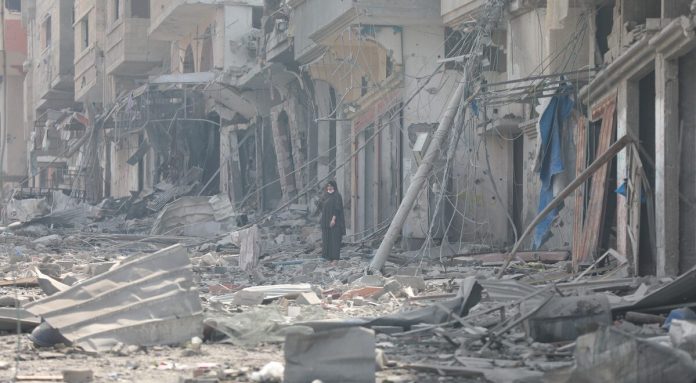The World Food Programme (WFP) reported that not a single food lorry has entered the northern Gaza Strip since the beginning of October, placing 1 million people at risk of going hungry.
The WFP said that not a single food lorry entered northern Gaza in October, compared to about 700 food lorries in August. Only 400 aid lorries entered in September following the cessation of commercial operations at the Allenby crossing on the border between the occupied West Bank and Jordan. Moreover, the Al-Banna and Zadna bakeries in Deir al-Balah have stopped operating due to shortages of flour and fuel, while bread remains a staple food and has become a basic necessity since the war began a year ago.
The amount of aid entering the Gaza Strip plummeted to its lowest level in months, forcing the organisation to stop distributing food parcels in October, WFP said in its report. Earlier this week, the UN’s OCHA said: “September saw the lowest volume of commercial and humanitarian supplies entering Gaza since at least March 2024.”
Gaza like Japan after nuclear bombs
The condition of children in the region remains extremely precarious. Toshiyuki Mimaki, co-chair of Nihon Hidankyo, a Nobel Peace Prize-winning organisation made up of survivors of the atomic bombings of Hiroshima and Nagasaki, said the current situation of children in the Gaza Strip is similar to Japan after the nuclear bombings at the end of World War II.
“In Gaza, bleeding children are being held by their parents. It’s like in Japan 80 years ago. Children in Hiroshima and Nagasaki lost their fathers in the war and their mothers in the bombings. They became orphans,” Mimaki said at a news conference in Tokyo.
The people are wishing for peace. But politicians insist on waging war, saying, ‘We won’t stop until we win.’ I think this true for Russia and Israel, and I always wonder whether the power of the United Nations couldn’t put a stop to it, said Mimaki.
He also warned that nuclear weapons do not bring peace. “It has been said that because of nuclear weapons, the world maintains peace. But nuclear weapons can be used by terrorists,” he said. He was 3 years old when the atomic bomb hit Hiroshima on 6 August 1945, killing 140,000 people. Three days later, another bomb fell on Nagasaki, killing another 70,000 people. Japan surrendered on 15 August 1945, ending World War II.
